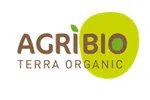This year's long Spanish lemon season has had an impact on the start of the overseas campaign. Demand for overseas fruit is consolidating, according to Agribío, a producer and marketer of organic citrus, which supplies lemons and oranges all year round. Although organic citrus consumption is down in general, lemons are one of the products that are holding up best.
"It has been a rather atypical lemon season, with an oversupply of yellow lemons and an exceptionally long season that has lasted well into the summer," says Agribío's production manager Miguel Ángel Mira López. "This has pushed prices down, which is certainly not good for the Spanish lemon sector. The situation has not been as bad for the organic production, but prices are still at historically low levels compared to recent seasons."

"The Southern Hemisphere campaign is meant to complement the Northern Hemisphere one; in other words, its goal is to meet the demand that Spain is unable to cover," says Miguel Ángel. "Therefore, each season is different and numerous factors can affect it. The biggest challenge is getting the supply to match the demand in the Northern Hemisphere, as there can be great variations because of the weather, the length of the season, etc., and the balance between them isn't always as good we would desire."
"This year, for example, we have had an exceptionally long domestic yellow lemon season that has lasted until the end of July, and the start of the overseas season has naturally been affected by this," he says.

There are few companies that can offer organic lemons all year round. "Our commitment has always been to try offering citrus from the Northern Hemisphere for as long as possible," says Miguel Ángel. "In order to have a year-round supply, a few years ago we started our own production in the Southern Hemisphere. Our aim is to guarantee a stable supply of both organic oranges and lemons to our European clients. We certainly believe that this allows us to stand out from other market operators, and as the years pass, the demand for overseas fruit is consolidating."
Although Agribío works with various origins during the off-season period, its productions come mostly from South Africa and Chile, two countries with a great citrus growing tradition. "Our crops in the Southern Hemisphere have all the guarantees of organic agriculture. Even our Growing for Life seal of regenerative agriculture has been implemented for our South African crops," says Miguel Ángel Mira.

"The varieties we work with are based on traditional varieties with a great reputation among consumers because of their taste, such as the Eureka lemon, highly appreciated for its high juice content and characteristic yellow color. As for oranges, we can offer the whole Navel and Valencia range, highly appreciated for their juiciness and balanced taste," he says.
"Although organic citrus consumption is down in general, lemons are holding up"
According to Agribío's product manager, in general, "we are seeing a drop in citrus consumption, while other types of fruit, such as exotic fruits, have been gaining ground in recent years."
"However, depending on the country, there are substantial differences in how consumption has been affected. For example, in Denmark, one of the countries with the highest organic consumption per capita, the consumption of organic lemons is on the rise, especially in the catering sector. In Germany, the opposite is happening; the growth of organic lemons is slowing down in the catering and hospitality sector," he says.

"Although citrus consumption is down in general, lemons are one of the most stable products, at least in our case. Our lemon volumes are resisting or have not been as affected by the drop in consumption over the last few years. We believe that offering a year-round supply of yellow lemons plays an essential role in this," says Miguel Ángel Mira.
France and Germany are Agribío's main markets, with almost 90% of the total volume going to these countries. "Germany is a more mature market when it comes to organic produce, so consumption and demand have not been as affected by the current inflation. France is a younger market which recorded very significant growth in the precovid period, but which has been more affected by the economic situation in recent years. Still, in the last few seasons, the demand for organic products seems to be picking up a little again."
"Small and medium-sized retailers in France being absorbed by larger chains in recent years is also causing organic product consumption to concentrate in large supermarkets," he says.
 For more information:
For more information:
Miguel Ángel Mira López
Agribio Terra Organic
Polígono Industrial La Coma
C/ 12, n.º 54 CP 46220 Picassent, Valencia, Spain
Tel.: (+34) 961 232 646
[email protected]
www.agribioterraorganic.com
